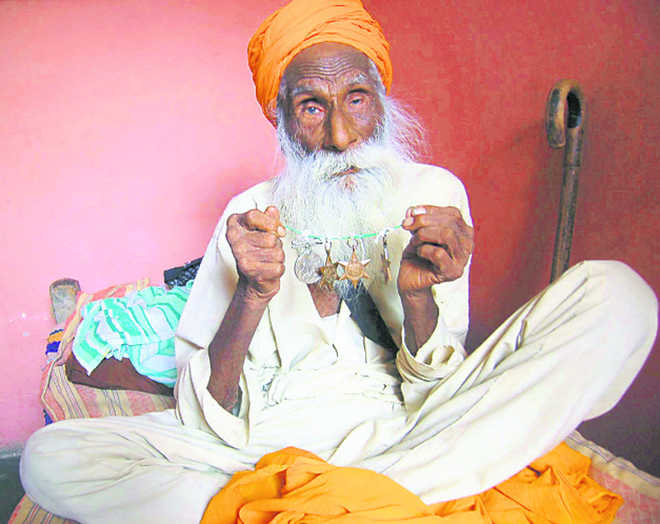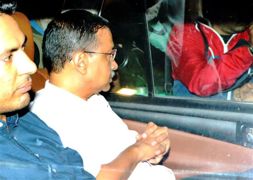
long forgotten: Pension of Gunner Bachan Singh, who was injured in Libya, was restored in 2008 after battling for 59 years. He died the same year. file photos: vicky gharu
Bhartesh Singh Thakur
History is written by the victors, they say. War history is no different. It is also about wars, victories, heroes and strategies. Sadly, hardly ever does it talk about those disabled for life in the battlefields. Countless among them continue to fight for decades for pensions and hikes before tribunals and courts in the country.
Such is the state of affairs of human resource management in defence forces that irrational orders continue to be contested by the bureaucracy right till the Apex court if favourable orders don’t come from tribunals. The Right to Information Act has come to the aid of disabled soldiers fighting court cases. It enables them to be able to get some information from the otherwise opaque military administration. Earlier, the soldiers would not know why their pensions had been reduced.
The lower rung officers in pension disbursal administration are more inclined to deny benefits and the top rung just follow those notings in toto. The result: cases being contested for years. There are cases where benefits have been denied even after the intervention of the Chief of Army Staff.
It was in 2014 that Maj Navdeep Singh came out with Maimed by the System, an anthology of real-life accounts of military personnel, veterans and kin who fought and even successfully claimed their rights from courts, but after decades and some even posthumously.
One of the prominent stories in the book is that of Capt Manjinder Singh Bhinder, who lost his life in the 1997 Uphaar Cinema tragedy, but not before saving 150 lives. His wife and four-year-old son, too, died in the fire. His parents were denied pension benefits on the ground of “death not attributable to military service”. A soldier is expected to respond to emergency situations even on leave, and he had died doing so. His parents had to approach Delhi High Court, which not only restored pension benefits, but also his honour.
Another story is that of Gunner Bachan Singh from Ropar, whose pension was restored after battling for 59 years. While serving in Libya, he got injured after a shell fell on the vehicle he was travelling in. He lost function of his right hand. The British Crown retained him in service despite his disability, but India, after gaining independence, sent him back in November 1947. The military accounts branch discontinued his pension in 1949 on the ground that his disability was under 20 per cent, while it actually was 30 per cent.
In the mid-2000s, a letter on the case written to Lt Gen S Pattabhiraman, the then Army Commander, Western Command (he later rose to Vice-Chief of the Army Staff), elicited personal action by the General. Bachan Singh’s medical examination was conducted in 2005 and finally, in 2008, he got his pension back with arrears. He died the same year.
Seventeen such stories have been narrated in the book. The corridors of courts are replete with such tales where soldiers have been ‘crippled’ by the military administration, but no one to tell them.
In contrast, the West has produced many a literary work on the plight of their soldiers. John M Kinder’s Paying With Their Bodies is about an Iraq War veteran who lost his legs in a bomb attack. It questions a nation’s obligations to those who fight in its name. Audra Jennings’s Out of the Horrors of War: Disability Politics in World War II America shows how “disability is not merely ‘another’ analytic category for historical analysis, but a crucial part of US political and policy history”. Sam Gaylord’s memoir, Then I Came Home, says the US government did not support its troops in the Vietnam War and has not paid heed to its combat veterans.



























